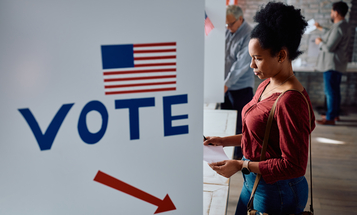
In the media
Preventing Prison-Based Gerrymandering in Redistricting: What to Watch For
Sometimes, a district that seems to have a majority-minority population really doesn't, because of prison-based gerrymandering.
Prison-based gerrymandering is the practice of counting incarcerated persons as “residents” of a prison when drawing legislative districts in order to give extra influence to the districts that contain the prisons. The U.S. Constitution requires that election districts be roughly equal in size, so that everyone is represented equally in the political process. But prison-based gerrymandering distorts our democracy by artificially inflating the population numbers — and thus, the political clout — of districts with prisons, while diluting the political power of all other voters.



